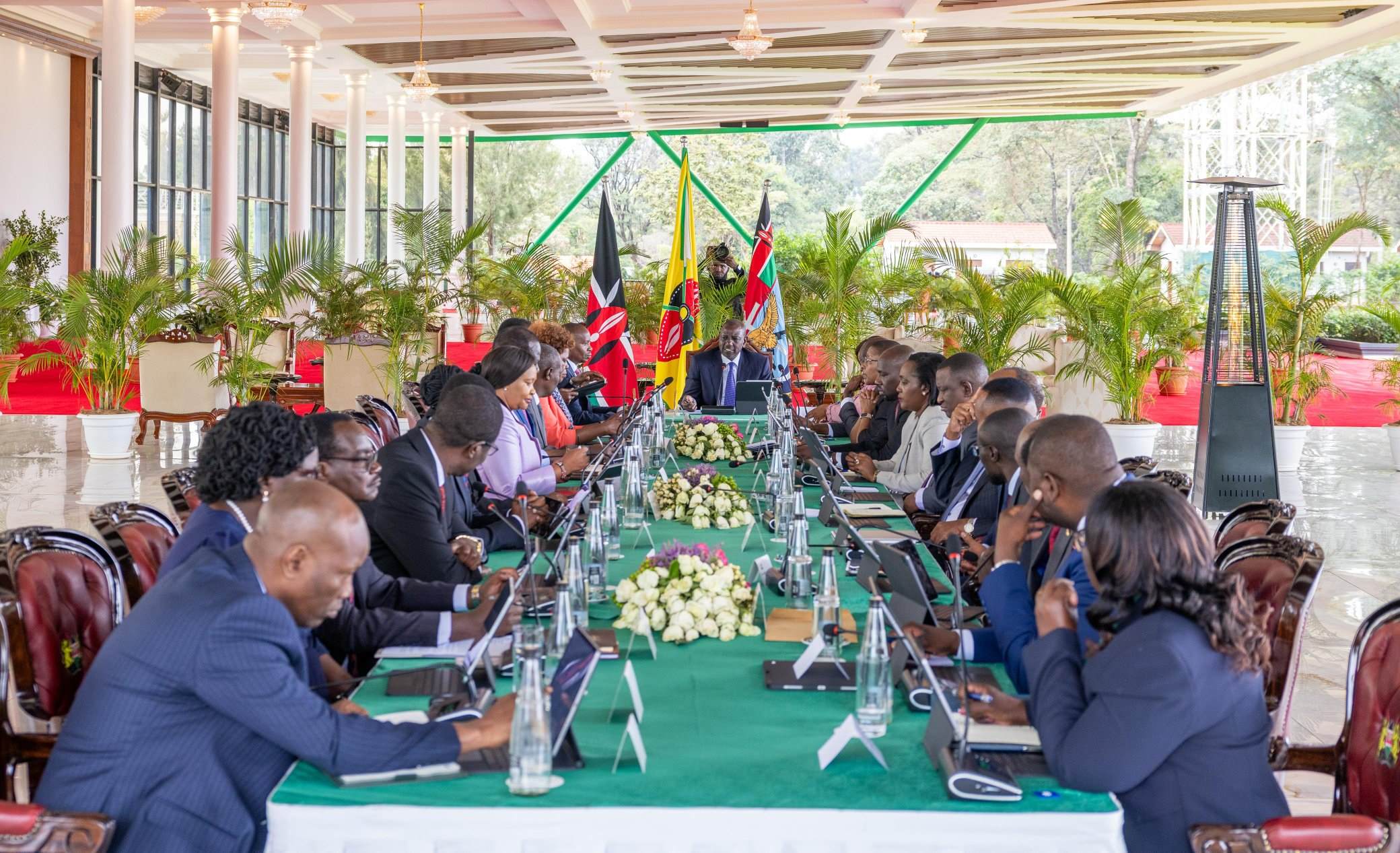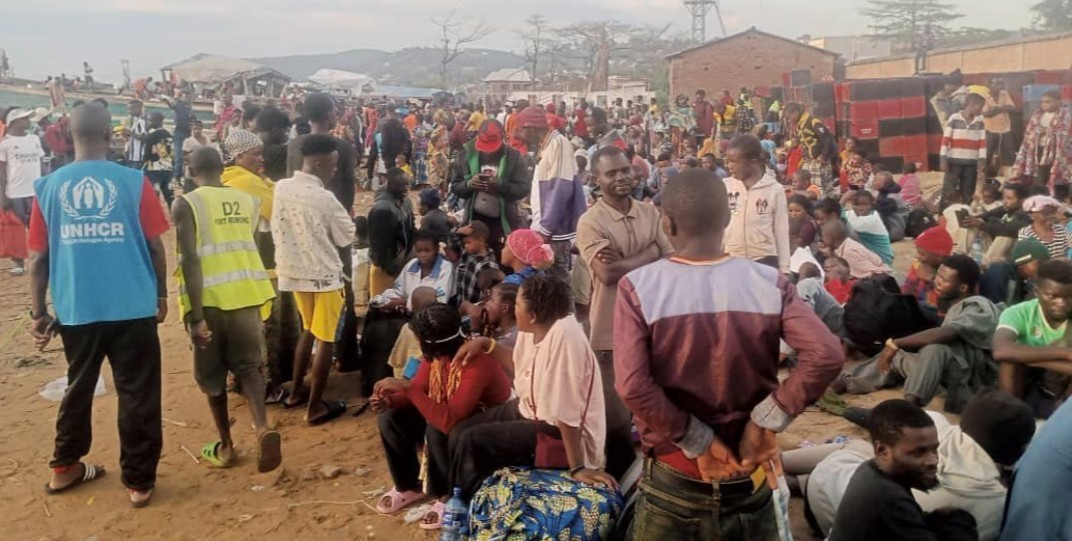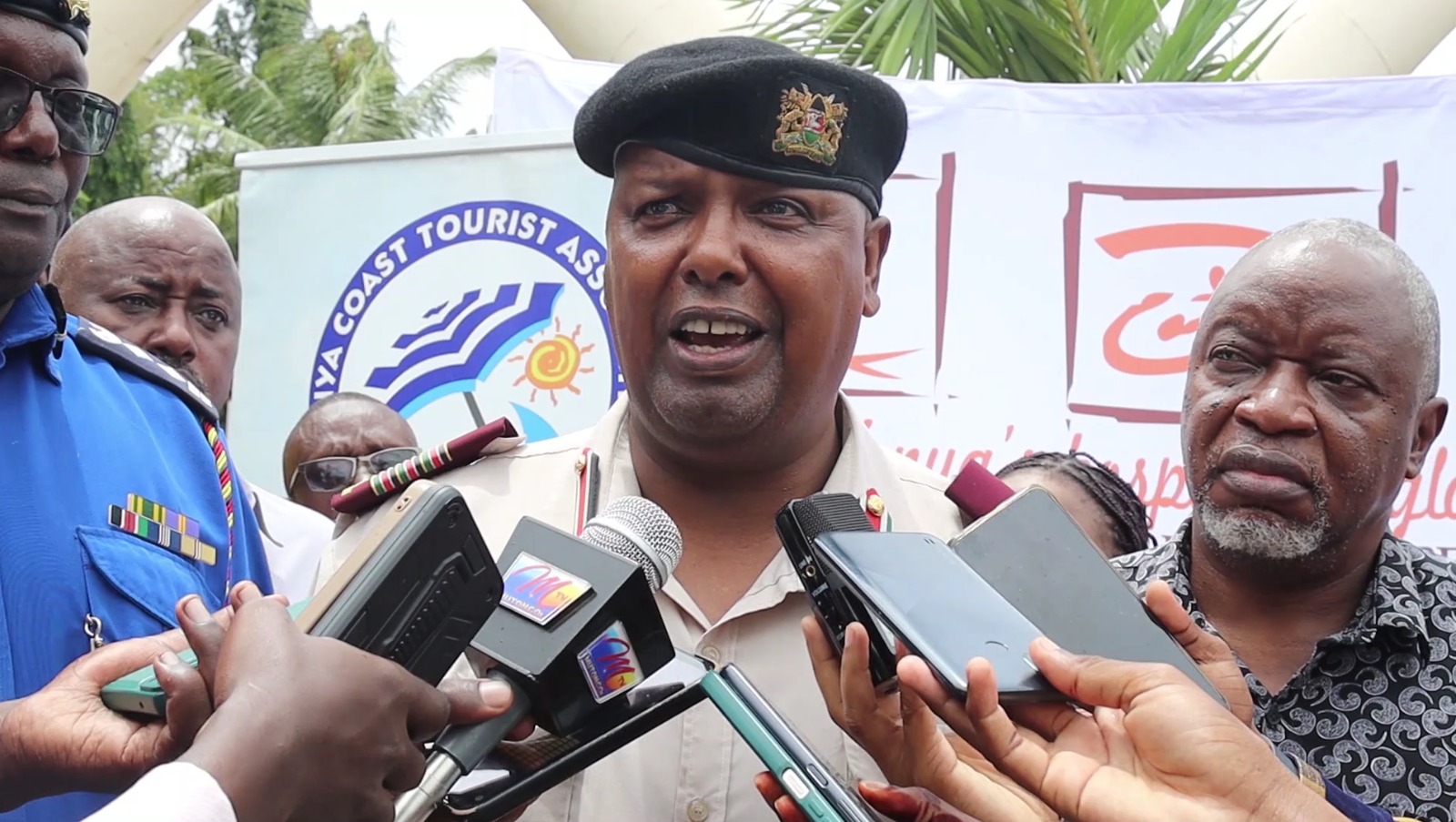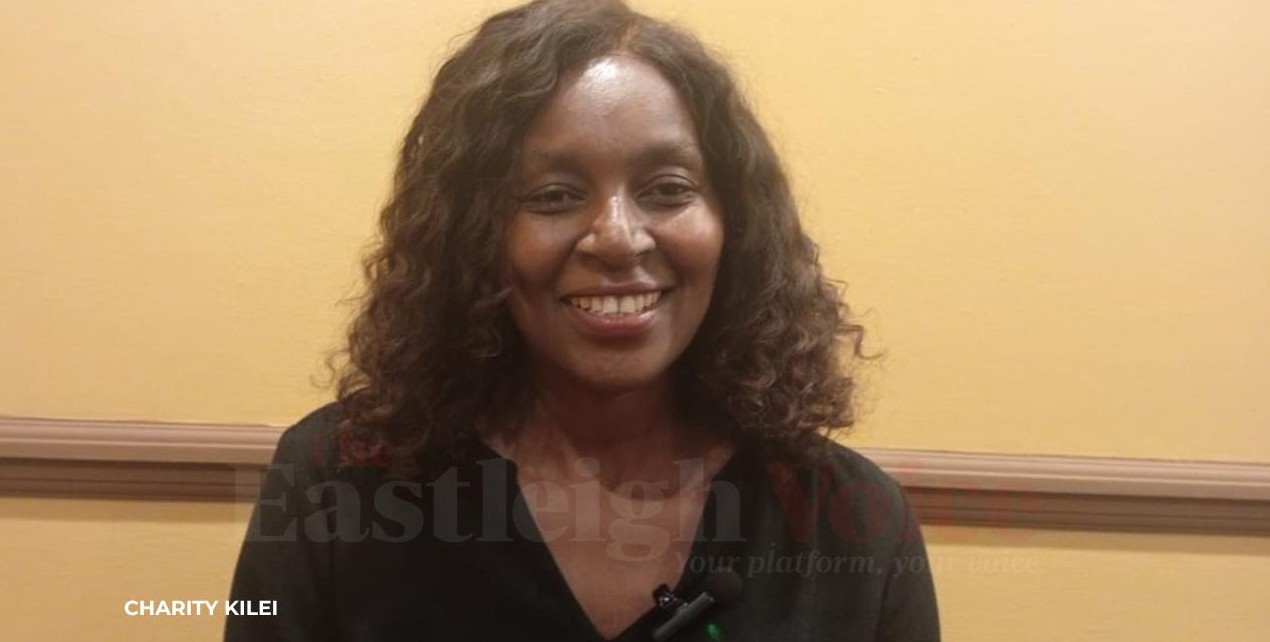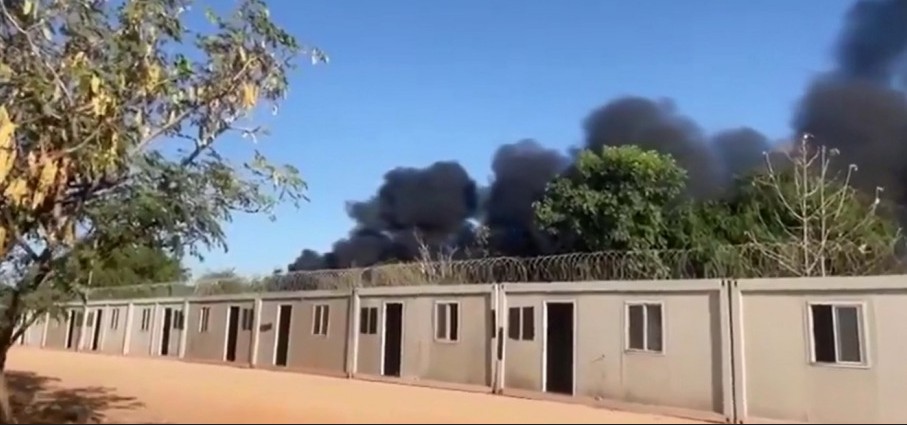Kamukunji youth mint cash from new waste management initiative
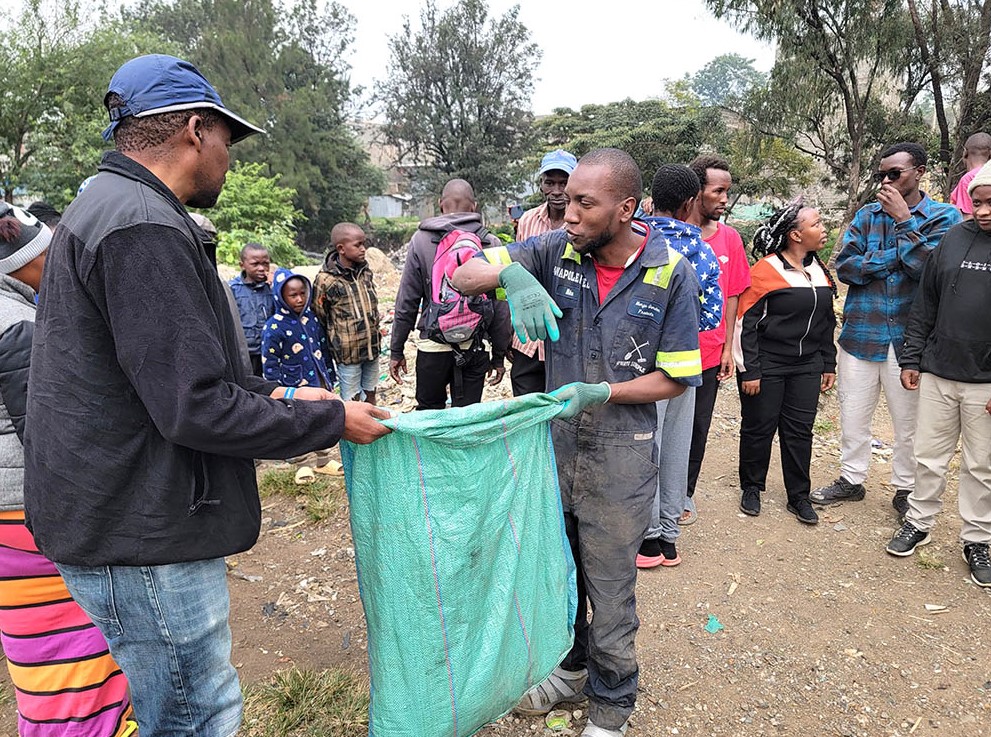
The initiative was motivated by the need to have a clean neighbourhood through proper disposal of the generated waste.
One of the headaches facing urban centres in Kenya is waste management, with the capital Nairobi, for example, generating between 2,000 and 2,500 tonnes of waste daily, according to the World Bank.
One of the ways of managing the different forms of waste is by recycling, with those who venture into it generating a good income.
More To Read
- Eastleigh boda boda riders adopt unique reflectors to boost safety, gain customer trust
- Eastleigh bustles with Christmas shoppers as holiday season kicks off early
- Tatu City hosts Muslim business community to explore new investment opportunities
- How community initiative is reviving Eastleigh’s cricket legacy
- Eastleigh MCA blames county officials for destruction of newly built Captain Mungai Street
- Youth football comes alive in Eastleigh as Fazam Academy clinches Moi Cup title
Recognising this potential, Diplomats for Health in Resilient Communities (DFH-RC), an organisation based in Majengo Pumwani Ward in Nairobi’s Kamukunji sub-county, has launched an initiative called Eco-minds.
The initiative by the group which champions the mental and emotional well-being of young people focuses on addressing climate change and environmental management.
In collaboration with Youth for Sustainable Development (YSD), Kenya Platforms for Climate Governance (KPCG) and Youth Alive Kenya (YAK), DFH-RC is working to create opportunities within the community.
In a recent community engagement forum on waste management in the Kamukunji constituency, the lobbies revealed their plan to champion the formation of small communities for collective efforts of disposing of plastics and getting paid for it.
This is intended to curb the plastic pollution menace that is choking the community and other challenges that the garbage collectors expressed during the forum which include individuals disposing of garbage in non-designated areas to avoid paying collection charges.
Proper waste management
Hassan Koki, the director of Eco-Minds at DFH-RC, told The Eastleigh Voice that their initiative was motivated by the need to have a clean neighbourhood through proper waste management.
“My project aims to change the behaviour of the community, keeping in mind that if our community members know that the waste around them can make their money, it will be easier to manage it since no laws are needed to enforce this,” Hassan said.
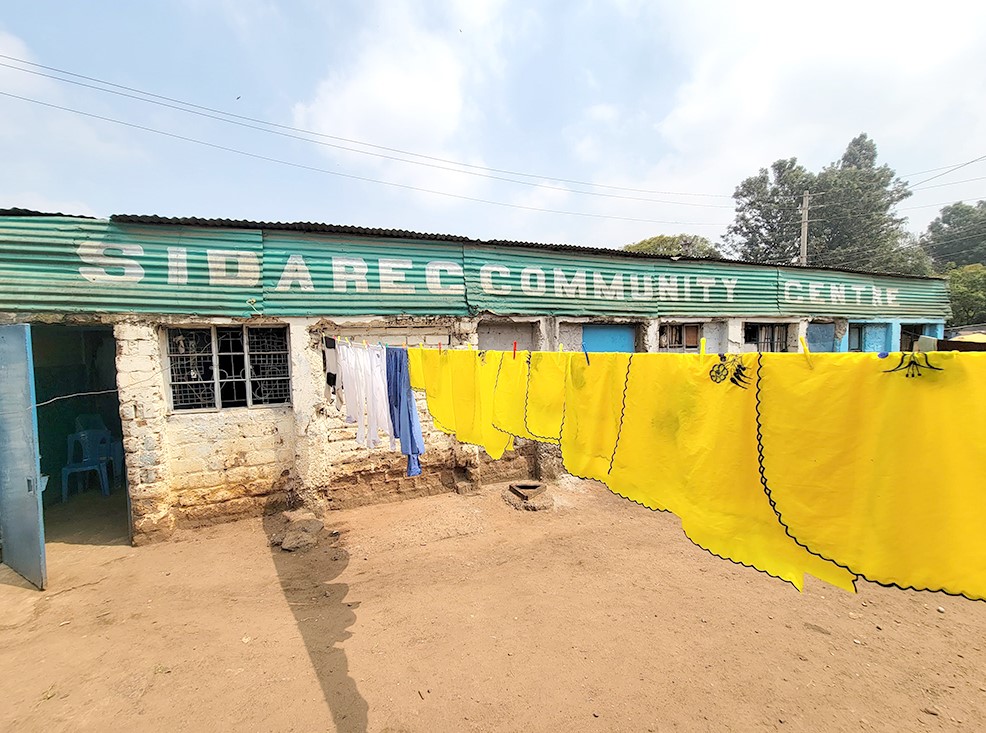 Sidarec Community Centre where Diplomats for Health in Resilient Communities conducted a community engagment session in Pumwani, Majengo Ward focusing on waste management. (Photo: EV)
Sidarec Community Centre where Diplomats for Health in Resilient Communities conducted a community engagment session in Pumwani, Majengo Ward focusing on waste management. (Photo: EV)
He said their first objective was to bring a behaviour change in the community and educate members on how they could make money from the waste lying around them.
They also aimed to educate the people on what circular economy — a model of production and consumption that involves sharing, leasing, reusing, repairing, refurbishing and recycling existing materials and products as long as possible — entails, and some of its principles.
Through meaningful partnerships between government agencies and the private sector, Kenya is on a path to strategically integrating circularity in key sectors that will result in the development of new businesses active in redesigning, recycling and managing waste. It will increase sustainable economic development and resilience.
DFH-RC, YSD and YAK emphasised the principle of reducing, reusing and recycling, encouraging the community on the need to sort waste at source.
“All garbage that we throw away is a resource. Sorting waste can save a lot of resources and protect both people and the environment. Sorting your garbage well helps to ensure that hazardous substances are disposed of safely. This can help you earn money,” said Faith Ngige, the KPCG national coordinator.
She said by separating different materials, most can be recycled into new products.
Challenges
The community members said they face various challenges in their efforts to manage waste. They said some of the businesses operating in the neighbourhood have no designated waste disposal areas, while others deliberately throw waste into trenches.
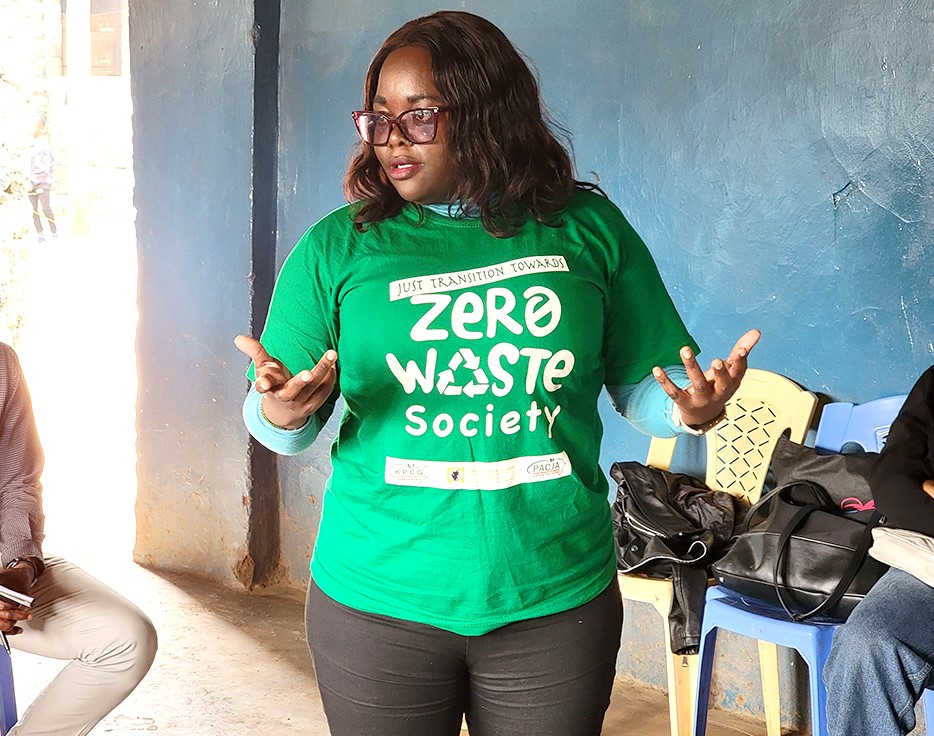 Faith Ngige from the Diplomats for Health giving a talk. (Photo: EV)
Faith Ngige from the Diplomats for Health giving a talk. (Photo: EV)
Kevin Omondi, a garbage collector with Wapole Kijeshi CBO in Majengo Pumwani, said some people who work in the neighbourhood but are not residents have contributed to the situation that is now affecting the community.
“They would rather throw waste in the trenches but now that we have learned that it is a source of income, we will try to educate them on how to segregate waste,” he said.
Some of the community members said that they prefer burning waste to prevent children from playing with it as some of it is hazardous.
However, Ngige advised them against the burning of waste in open places as this is prohibited by the Waste Management Act.
“Burning waste in open places leads to the pollution of the environment. We will work with relevant bodies to see if we can have incinerators to burn the waste that cannot be recycled,” she noted.
Peter Kariuki, a resident of the California ward in Kamukunji, and who was a beneficiary of the community engagement forum, said he would strive to implement what he had learned at the meeting.
“What pushed me to come to this event is the fact that I am an enthusiast of environmental conservation and what I have learned today on how to segregate waste is what I will amplify to my community,” Kariuki said.
Although a circular economy is a logical and natural cycle of how we use resources, it requires a lot of effort to adapt and operate. It requires an ‘all-in-approach’ from the industry, citizens, and government. Kamukunji residents have not been left behind in this pursuit either and, according to those who spoke to The Eastleigh Voice, their journey has just begun.
Top Stories Today

